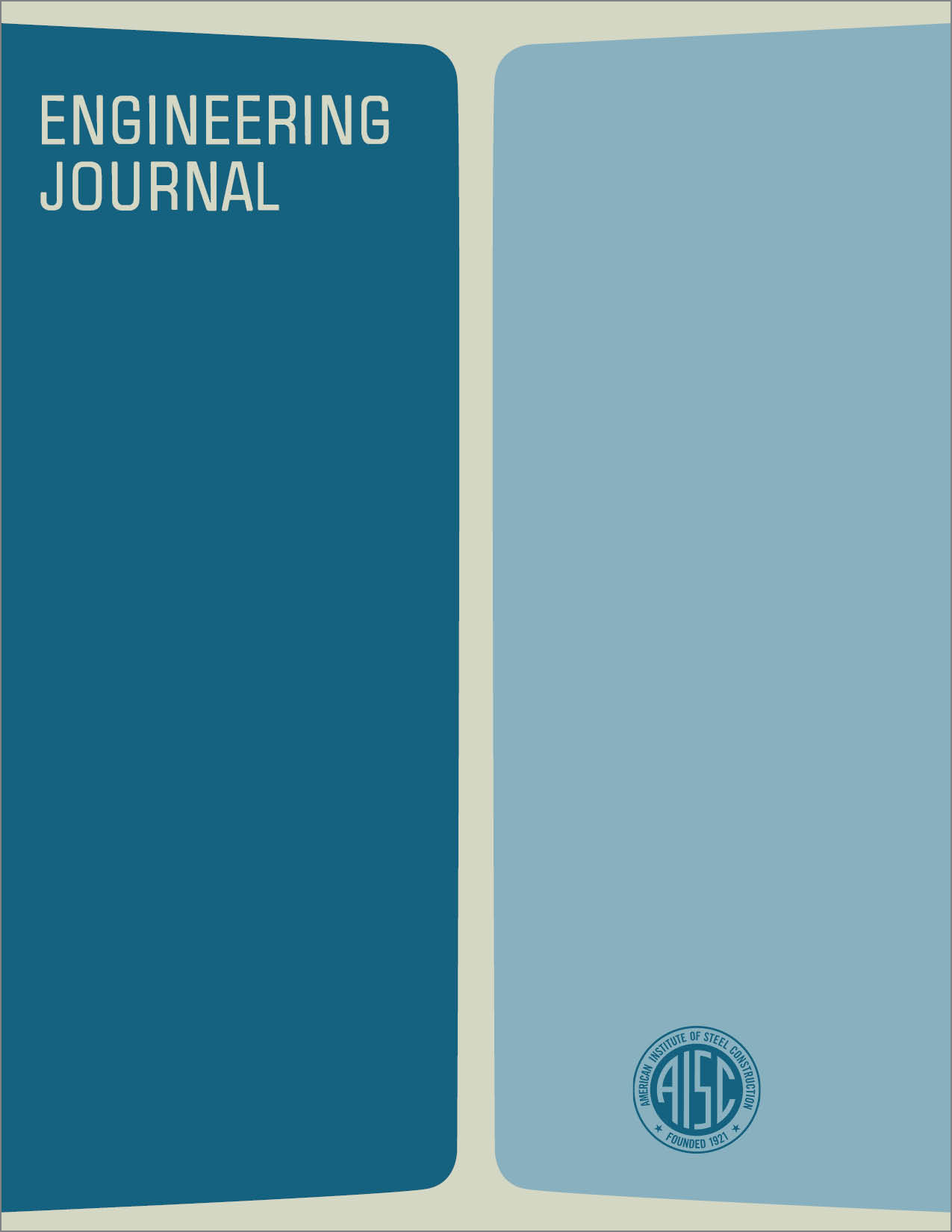Investigation of Triangular Heats Applied to Mild Steel Plates
DOI:
https://doi.org/10.62913/engj.v9i4.196Abstract
Heat curving or heat straightening is at the present time more an art than a science. Prediction of the effects from heating a structural member for the purpose of creating a change in shape is at best a trial and error procedure. Beyond this, the actual internal stresses (residual stresses) have not been measured for specimens in which heat-curving has been the prime objective. In this investigation, triangular heats were applied to flat plates and the induced curvature measured. Following this, the theoretical curvatures and the associated residual stresses were calculated using an electronic computer. In keeping with standard practical procedures, prior to the application of the heat curving process a preload was applied to the plate. In all cases, this preload induced a known bending stress of 25% of yield at the test section. Finally, tensile test coupons were tested before and after heating in order to determine if there were any significant changes in the yield strength, ultimate strength, fracture stress, modulus of elasticity, and percentage elongation.

